Search
Did you mean: Nefertiti?
Summary 
Loading AI-generated summary based on World History Encyclopedia articles ...
Search Results
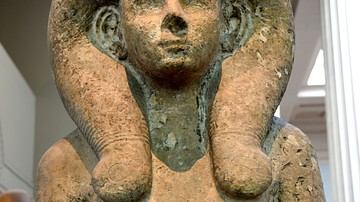
Definition
God's Wife of Amun
The position of God's Wife of Amun was one of the most politically powerful and spiritually significant in later Egyptian history. Elevated from a figurehead in the New Kingdom (c.1570-1069 BCE), the God's Wife of Amun would hold power equal...
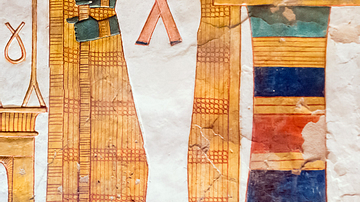
Image
Relief of Ptah, Tomb of Nefertari
Part of a larger relief depicting Nefertari making offerings to Ptah. In this section, Ptah is depicted in his characteristic form as a mummified man holding a was-sceptre. From the Tomb of Nefertari in the Valley of the Queens. Thebes, Egypt...
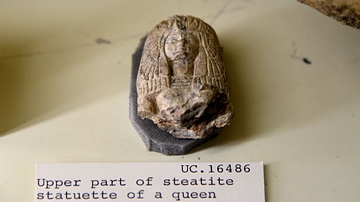
Image
Statuette of Queen AHMOSE-NEFERTARI
This is the upper part of steatite figurine of queen AHMOSE-NEFERTARI, the patroness of the Theban Necropolis. She wears the vulture headdress. From Egypt, precise provenance of excavation is unknown. 19th Dynasty, circa 1292 to 1187 BCE...
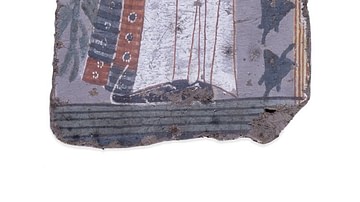
Image
Ahmose-Nefertari
Rectangular fragment of a polychrome tomb-painting representing Ahmose-Nefertari standing among foliage with cartouche above.
20th Dynasty, Tomb of Kynebu, Thebes, Egypt.
British Museum, London.
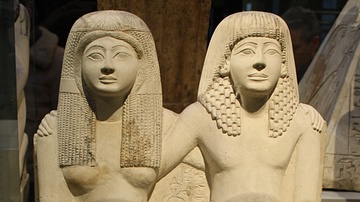
Image
Pendua & Nefertari
A limestone statue of Pendua and his wife Nefertari. The couple embrace in an unsual depiction. Deir-el-Medina, New Kingdom, Dynasty XIX, 1292-1186 BCE. (Egyptian Museum, Turin)
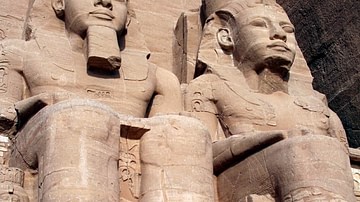
Definition
Ramesses II
Ramesses II (r. 1279-1213 BCE, alternative spellings: Ramses, Rameses) was known to the Egyptians as Userma'atre'setepenre, which means 'Keeper of Harmony and Balance, Strong in Right, Elect of Ra'. He is also known also as Ozymandias and...
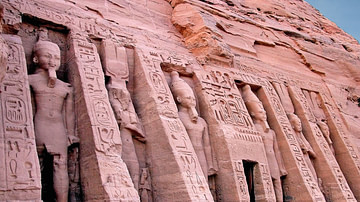
Definition
Abu Simbel
Abu Simbel is an ancient temple complex, originally cut into a solid rock cliff, in southern Egypt and located at the second cataract of the Nile River. The two temples which comprise the site were created during the reign of Ramesses II...
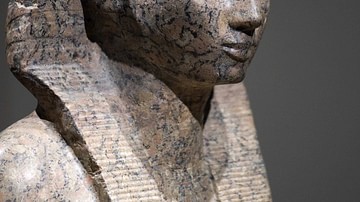
Article
Great Female Rulers of Ancient Egypt
Women in ancient Egypt had more rights than in any other ancient culture and were valued with greater respect. This is evident not only in the physical evidence and inscriptions but in their religion. Some of the most powerful and important...
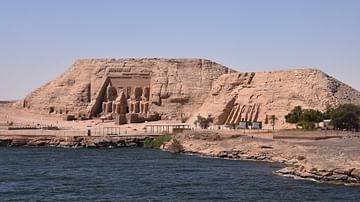
Article
Sailing on Lake Nasser towards Abu Simbel
In ancient times, the First Cataract at Aswan marked the southern frontier of Egypt. Beyond lay the land of Nubia, which stretched along the river Nile from the First Cataract southwards for about 250 kilometres (155 mi). This region, known...
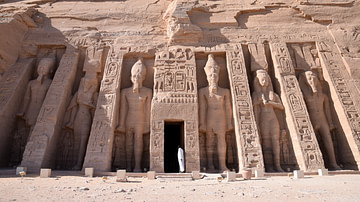
Image
Abu Simbel, Facade of the Temple of Hathor
The Temple of Hathor or "Small Temple" was constructed during the reign of Ramesses II (c. 1279 - c. 1213 BCE). The Small Temple was dedicated to the goddess Hathor and Queen Nefertari, Ramesses' favourite wife. On the facade, six colossi...